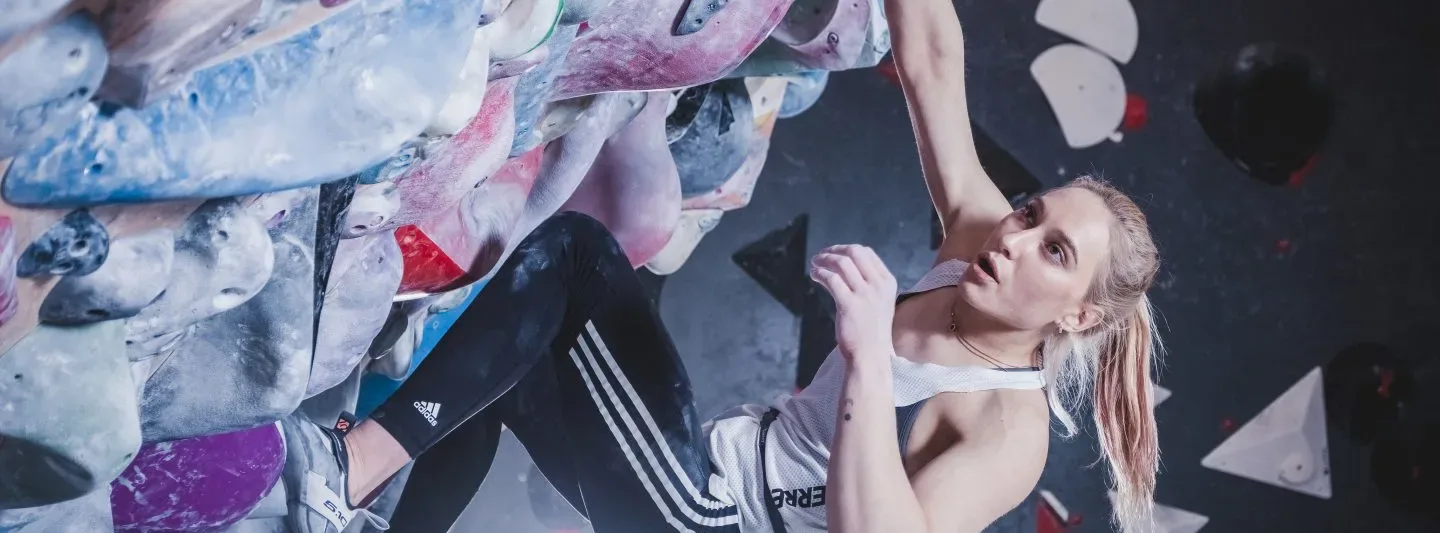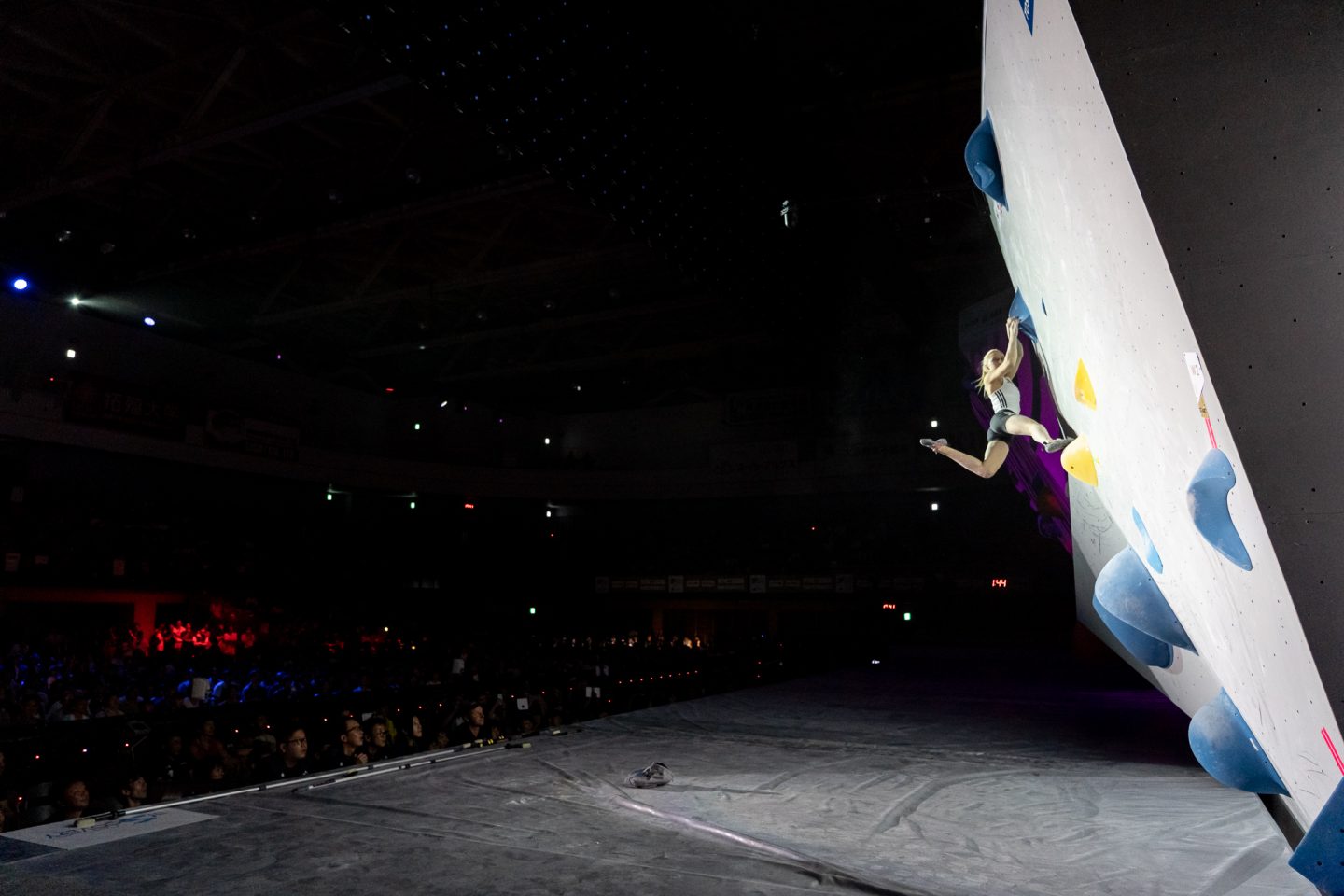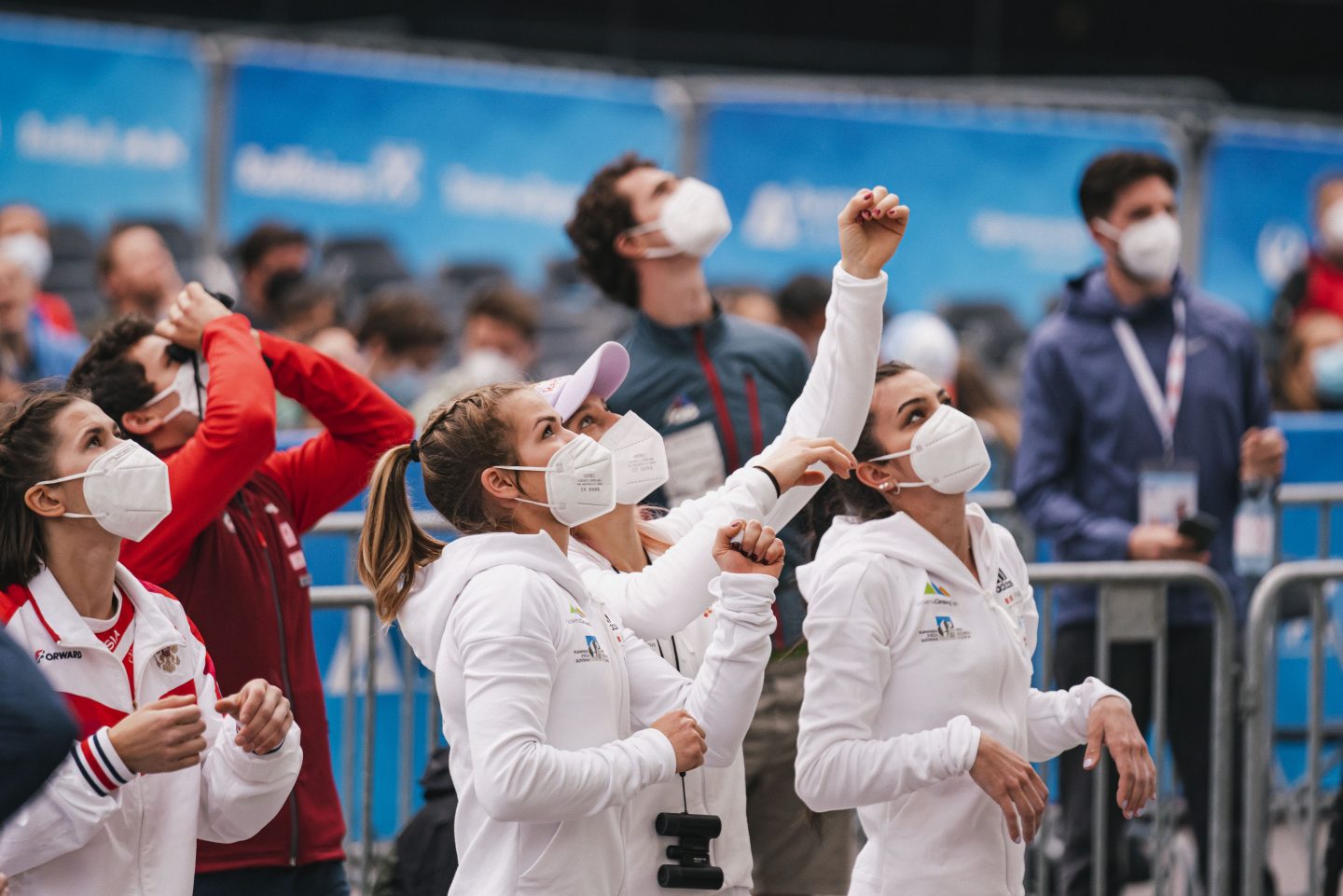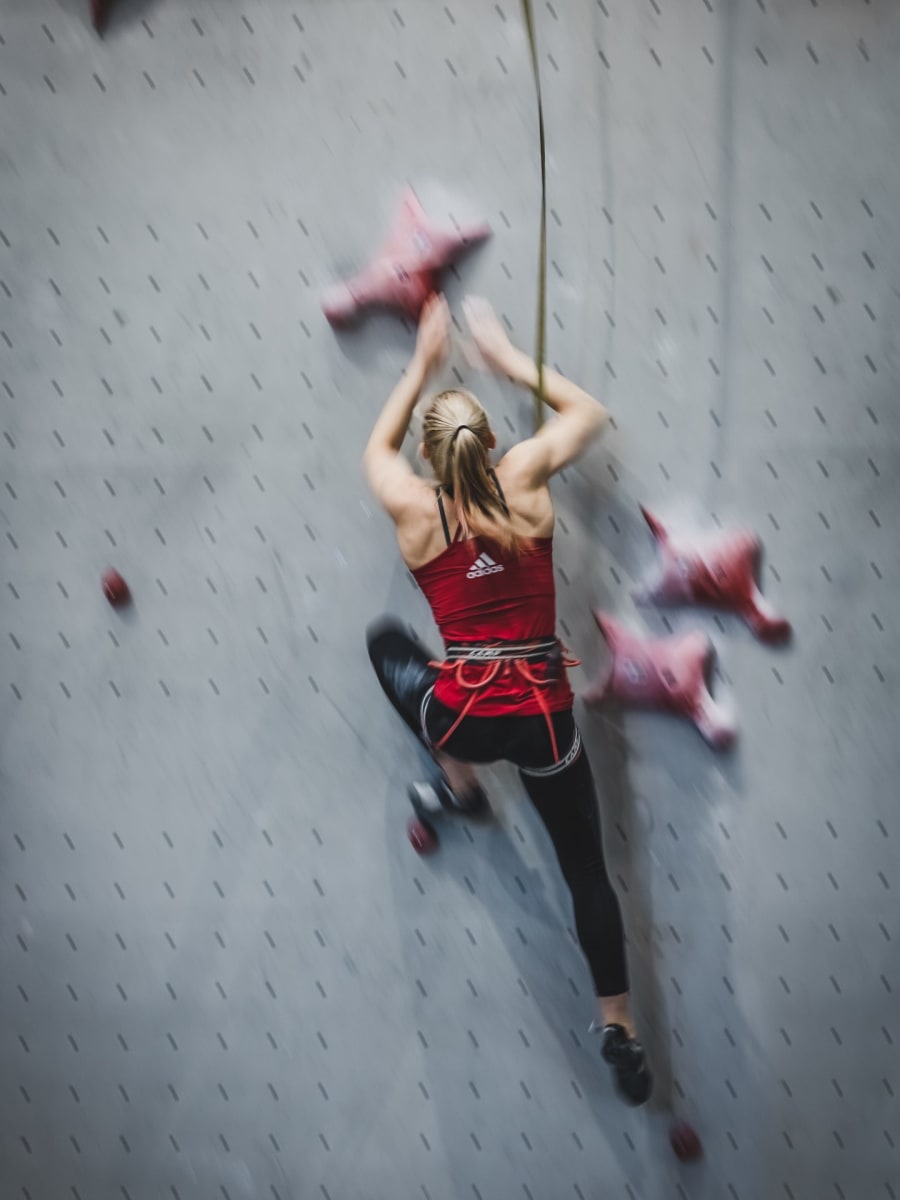
World Champion Janja Garnbret on Why Individual Climbing Could Actually be the Ultimate Team Sport
As climbing prepares for its global debut, Janja Garnbret explains how important teamwork is in this solo sport.

If you were the world’s best climber, lining up before your gold medal event, would you turn to your competitors and start to discuss your possible tactics? Well, Janja Garnbret would, and that is why she thinks climbing is the best sport out there.
When sport climbing debuts in Japan this summer it will have the ability to astound and amaze, and not just because of athletes hanging off an artificial rockface by their fingertips. The way the climbers compete against, but also help each other, is completely unique.
 Janja Garnbret on the wall in the 2019 IFSC World Cup season where she won a record-breaking number of international competitions. ©Eddie Fowke
Janja Garnbret on the wall in the 2019 IFSC World Cup season where she won a record-breaking number of international competitions. ©Eddie Fowke
A sport like no other
Imagine the world’s best track and field athletes walking out before the 100m final… then all forming a huddle and chatting about their plan for the race. It sounds mad, but that is what happens at the start of each lead climbing event, one of the three types of climbing debuting this summer in Tokyo.
Before their individual attempts to scale an overhanging wall more than 15 meters high, competing athletes are given six minutes all together in ‘observation’. Here they examine the possible routes and work out how they will tackle the climb. During this period, competitors will often exchange ideas.
 “In observation, we always share our thoughts. Nobody is keeping secrets. Sometimes one girl is worried about the route, and I say, ‘You should just go like that’.” Janja Garnbret is a record-breaking climbing prodigy, and a strong contender for a medal this summer. For her, this contrast between competitive collaboration and individual effort is what makes the sport so unique, and why she loves it so much.
“In observation, we always share our thoughts. Nobody is keeping secrets. Sometimes one girl is worried about the route, and I say, ‘You should just go like that’.” Janja Garnbret is a record-breaking climbing prodigy, and a strong contender for a medal this summer. For her, this contrast between competitive collaboration and individual effort is what makes the sport so unique, and why she loves it so much.
“In observation, we always share our thoughts. Nobody is keeping secrets. Sometimes one girl is worried about the route, and I say, ‘You should just go like that’.” Janja Garnbret is a record-breaking climbing prodigy, and a strong contender for a medal this summer. For her, this contrast between competitive collaboration and individual effort is what makes the sport so unique, and why she loves it so much.
"The way competitors help each other is what is special about our sport, and the climbing community. But, at the same time, when you climb you are still on your own. If you make a mistake, you’re the one who messed up."
The other unique element of sport climbing is that an individual always competes under their country’s flag, even outside of Olympic events. The national teams travel and often live together during competition. Janja says this creates the feeling of one big supportive family, “We are lucky that we have that good atmosphere in the Slovenian team. When I look at other teams, I don’t know if they have what we have.”
Of course, families can be difficult too, but sharing the ups and downs is what binds them together. “It’s good to be together for three days, five days, a week,” says Janja, but sometimes we are all together for two weeks, and then there can be some difficult moments. In the end though, we all go home happy. It’s a very supportive atmosphere and we don’t hold any grudges.”
"But, once we are finished, we cry together, we laugh together, we are happy for each other, or we are sad together."
The atmosphere of mutual support also makes it easier to get over bad results. There is no time for sulking says Janja. “Even though if you are not happy with yourself, you should be genuinely happy for the other girl who was better than you in that competition. In a competition, everybody’s focused and of course wants to do their best performance. But, once we are finished, we cry together, we laugh together, we are happy for each other, or we are sad together.”
The Janja Garnbret effect
Slovenia is a small country, with a population of just two million people. Yet, despite a small talent pool it still manages to produce world championship-level climbers on a par with countries like the US, China and Russia. It’s hard not to connect this success to the collaborative dynamic in the Slovenian team. It’s a dynamic where the experienced climbers like Janja Garnbret are expected to support and encourage the younger athletes… even though they compete in the same events. Team Coach Luka Fonda says it is crucial that the experienced athletes help nurture new talent:
“Janja knows she is strong. She knows she’s the best. But she’s still a person with a big heart, who is part of the family. She is willing to help all the younger athletes, and especially the girls from the youth team. This is part of the game. She had the same opportunity when she was a young child, and it is important to carry that on.”
Janja agrees, “There were girls before me who all were successful. Maja (Vidmar) and Mina (Markovič) were my role models. I watched all their climbing videos. I wanted to be like them. Of course, I was training hard, I wanted to be the best, but they showed me that it’s possible.”
"In turn I hope that I’ll be the example to the young girls, to show them what is possible. I hope that someday, a young Slovenian will become my rival, that they will train hard and then beat me. That's the point. The cycle must continue in our team."
With all the challenges created by COVID and the Games being delayed, the support of a team has been more crucial than ever. Soon the Slovenians will be competing on sport’s biggest stage, and until then Janja’s challenge is to keep a cool head. “I’m super excited about Tokyo. On the one hand, yes, it’s the biggest competition climbing has ever had, but at the same time, I have to take it just as another comp. Whatever happens, it will be special to be there as part of the Slovenian climbing team.”







